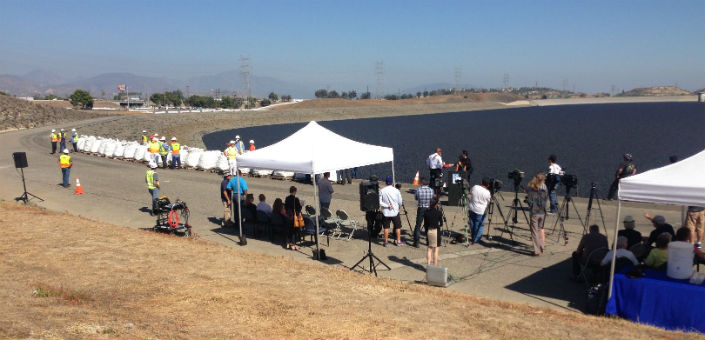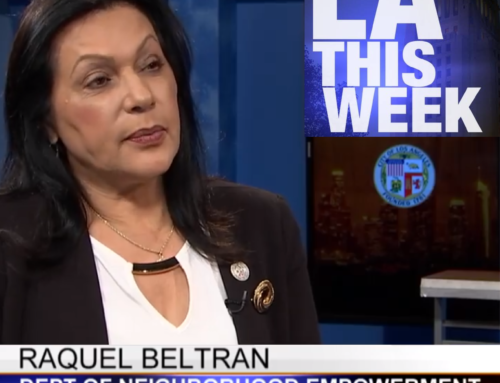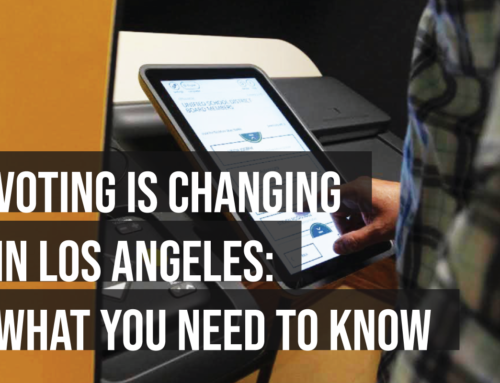By Tony Wilkinson
The proposed sausage ingredients are all laid out on the butcher table. They have yet to be ground up and stuffed into the sausage casing. It has been fascinating watching a master of this process account for everyone’s individual input while controlling which items get into a ballot measure and also creating a new DWP oversight role for the City Council.
On Thursday morning, June 2, City Council President Herb Wesson, Councilmember Jose Huizar, and Councilmember Marqueece Harris-Dawson announced the Rules, Elections, Intergovernmental Relations, and Neighborhoods Committee recommendations for DWP Reform. There are 40 separate proposals: 17 recommendations for charter change (item 1, letters a through q), and 23 additional recommendations (items 2 through 24) for either ordinance changes or report-backs on future possible ordinances. The proposal can be found on the city’s DWP Reform website (dwpreform.lacity.org). Click on “Related Documents”.
The 40 recommendations also include one request to the Mayor (#17) to exempt DWP from Executive Directive 4, or to modify it. Mayor Eric Garcetti’s ED 4 concerns legislative positions. I believe the reference is to the Antonio Villaraigosa administration’s ED 4, which is still used by this Mayor. That ED 4 requires the Mayor’s advance approval of DWP items that may go to the City Council before those items are allowed to be considered by the DWP board. For a list of the current executive directives see: lacity.org/city-government/city-charter-rules-and-codes
THE ASK – WHY DWP REFORM?
DWP General Manager Marcie Edwards appeared at the Rules committee meeting on June 2. Edwards was asked what she most wanted from a DWP Reform proposal. Her answer: DWP is a $5 billion a year business. I need to be able to manage it like a business. Specifically, I need (1) more freedom in contracting, and (2) more flexibility in hiring. Board changes were not among her requests.
Throughout the discussion of the DWP Reform proposal by Councilmember Felipe Fuentes (Council File 16-0093), there have been two additional goals: (1) reduce direct oversight of DWP operations by the Mayor and the City Council and transfer some of those powers to the DWP board (reduce ‘political interference’), and (2) remove direct association of the Mayor and the City Council from the rate setting process (so rates can follow publicly planned needs instead of becoming a political campaign issue).
The check on the newly empowered DWP board would be the City Council’s charter power under section 245 (approved by the voters in 1991) to veto actions of city boards and commissions.
The original proposal called for a full-time paid board to handle these added responsibilities (a management board, like the Board of Public Works). That proposal did not find much favor within city government or among Neighborhood Councils and charter governance specialists. However there are still echoes of the proposal in the proposed charter changes. These include expansion of the board to seven members (to increase diversity and to enable more work to be done by three-member committees), embedding a list of qualifications in the Charter (not specifically tied to Board seats in the proposal, but awkwardly a list of seven possible qualifications for seven seats), and a proposal for a monthly stipend for board members (to encourage highly capable people to provide approximately half time to their board position).
THE PROPOSAL – ONE PERSPECTIVE
There is no way to provide a quick impression of how the Rules committee proposal meets DWP Reform objectives without the introduction of personal opinions. So what follows is the writer’s view. He has been deeply involved in the discussions because of the courtesy of Council President Wesson and Mayor Garcetti in affirmatively including Neighborhood Council viewpoints in the deliberations. Nevertheless, your mileage may vary.
Contracting: There is widespread support for the reforms. It is ridiculous that contracts over $150,000 need to be approved by the City Council. The GM would be given authority to approve contracts up to $5 million without DWP board approval (and thus not subject to section 245 vetoes). The board would be given some approval authority (such as $15 million) that would not be subject to 245 vetoes. These changes will not receive opposition. Anything is better than the current situation.
Hiring: The original proposal asked to remove the City Charter requirement that DWP use the existing Civil Service system. DWP and its unions would then negotiate a replacement that could be vetoed by the City Council. This is the key reason for the rush to a November ballot. Any change to the rights of existing workers needs to be placed on a general election ballot. Thus it is either November 2016 or wait until 2018 (at which time momentum for DWP Reform might be lost). There was no appetite for removing Civil Service at DWP. The Rules committee thus came up with a charter provision that modifications to the existing Civil Service system can be made by binding agreements that are negotiated with city unions. Opinion: Problematic, and does not guaranty that the hiring issues will be addressed.
The Service Employees International Union (SEIU) has a foot in both camps. It represents general city workers as part of the Coalition of City Unions, and it represents the security officers at DWP. SEIU points out that many of DWP’s hiring and promotion restrictions exist in its labor agreements, and that the proposed secret negotiations with unions do not guaranty reforms.
Opinion: The proposed charter change needs to include an explicit grant to DWP of exemptions to Civil Service for 10 percent of its authorized positions. Without this provision, there is no promise that the possible change to worker rights will give management significantly greater flexibility. Ten percent is the same level of exemptions used under the Los Angeles County Civil Service system. It will assure the immediate ability of DWP to make emergency hires (for example, customer service workers during the billing system crisis) and to hire for special technical needs (for example, natural gas purchasing experience and managers with proven records of success at other utilities). Then go ahead with the existing proposal and see what the union negotiations deliver. Note: DWP’s dominant union has little incentive to bargain away Civil Service exemptions. These won’t happen without charter change, and they are the key answer to management’s ‘ask’.
THE TRADEOFF – A NEW CITY COUNCIL ROLE IN DWP POLICY
At a recent Rules committee meeting, there was a lot of discussion about the City Council’s role in setting policy for the Department of Water and Power. Much of this involved social goals, including green energy. At the end of the meeting, City Legislative Analyst Sharon Tso, on her own initiative, came back to the staff table. Recognized by Council President Wesson, she said that she needed to note, after the discussion, that today the City Council has NO role in setting policy for DWP.
Well that lack of a policy role is ‘corrected’ in this DWP Reform proposal. The Rules committee is proposing that DWP be required to submit for approval by the Mayor and the City Council four-year strategic plans, including projected rates. The City Council will draft an ordinance specifying what will be included in these plans, and the approval process. So while seeming to give power with one hand, the City Council is proposing to take back even more power with the other. This proposed approval process of four-year plans will create a council policy role that does not exist today.
Bottom line: Is the charter change ballot measure worth it for contracting alone? That is all it is assured of delivering without a grant of 10 percent exempt positions to address the hiring issues. If you vote yes on the measure as proposed now, you will also create a NEW City Council role over DWP policy that is sure to include many social objectives.
Please send your questions and comments on DWP Reform to dwpmou@EmpowerLA.org. DWP Reform information will be posted regularly at https://empowerla.org/dwpmou. There is additional information at http://dwpreform.lacity.org.
Tony Wilkinson is the Chair of the Neighborhood Council – DWP MOU Oversight Committee. He will be contributing information on the DWP Reform process to the EmpowerLA newsletter each week.






